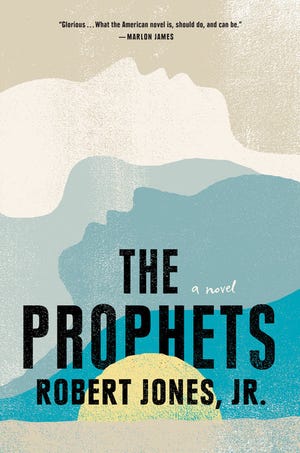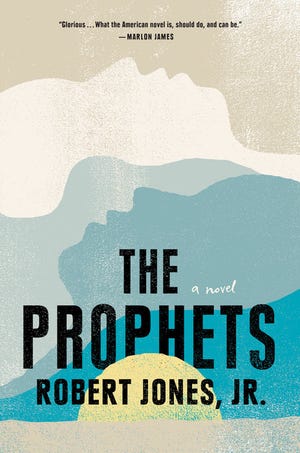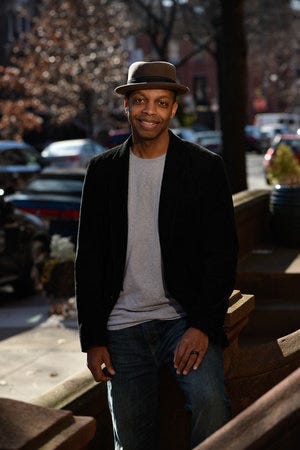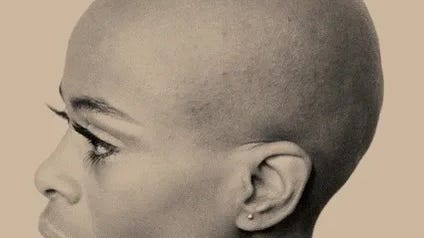
Homosexuality is at least as old as the Old Testament, but outside of a handful of scholarly reads that explore homosexuality (“A Desired Past,” “Intimate Matters” and “Zami: A New Spelling of my Name,” among others), the overall body of work shedding light on Black queer life is scant.
Along comes Robert Jones Jr., who taps into his brilliant dome to unearth an engrossing and magically written debut novel, “The Prophets” (G.P. Putnam’s Sons, 400 pp., ★★★★ out of four). Jones’ freshman opus takes readers into the lives of two enslaved men, Isaiah and Samuel, who manage to sustain a romantic relationship on a Mississippi plantation.
Residing on Halifax Plantation – known as Empty because of its rural Mississippi location, and an allusion for the hollow existence of slave life – enslaved stable workers Isaiah and Samuel indulge in a romance that’s not as hidden as they believe. Right away, Jones borrows from celebrated scholar Robin D.G. Kelley, who writes about race and resistance, by re-creating small acts of slave rebellion. “The Prophets” begins with Isaiah, who is more aggressive than his lover, trying to make love to Samuel. “So, you risk whupping, then?” Samuel asks. “You forget? We ain’t even gotta do this much to risk whupping,” Isaiah responds.
Book review:Anna North’s thrilling ‘Outlawed’ rewrites the myth of the Western

Rebellion is one of the themes that stitches together the fabric of “The Prophets.” Maggie, a fellow slave, wet nurse and cook, indirectly takes part in the gay couple’s rebellion. “There were many ways to hide and save one’s self from doom and keeping tender secrets was one of them,” Maggie says. “People rarely deviated from their nature, and although it pained her to admit, she found a tiny bit of comfort in the familiarity.” Not only does Maggie enjoy queer men intimately bonding with each other, she also enjoys watching them at night.
Paul Halifax, the plantation owner, is unaware of the homosexual men until he attempts to have them produce children. After several whippings that fail to “cure” the couple, he recruits Amos, the plantation preacher, to scare them with the wrath of God, to no avail.
Adding another layer of suppression to Black queer life, Timothy, a closeted gay man and heir of Halifax clan, becomes attracted to Isaiah and Samuel. An abolitionist sympathizer, Timothy believes his connection to the gay couple could offer them liberation: “Together we can be set free,” Timothy surmises. But Samuel is fully aware of the uneven playing field because Timothy is a free white man: “Giving them pleasure while all they give in return is grief.”
5 books not to miss:Feminist Western ‘Outlawed,’ Robert Jones Jr.’s ‘The Prophets’

In addition to the LBGTQ and rebellious themes throughout “The Prophets,” Jones also plays with historical content with his creation of Kosongo, a mythical land in Africa ruled by a woman, King Akusa. Kosongo is most likely inspired by Kosovo, part of the Ottoman Empire, which legalized same-sex relationships in 1858.
“The Prophets” is packed with otherworldly and supremely artful storytelling, and readers will surely get lost in a radiant romance. But most important, Jones adds to the growing body of literature that reimagines slavery – Colson Whitehead’s
“The Underground Railroad,” Ta-Nehisi Coates’ “The Water Dancer” – and to queer theory, in which Jones’ predecessor James Baldwin shed light on, disrupted and intersected with race.
